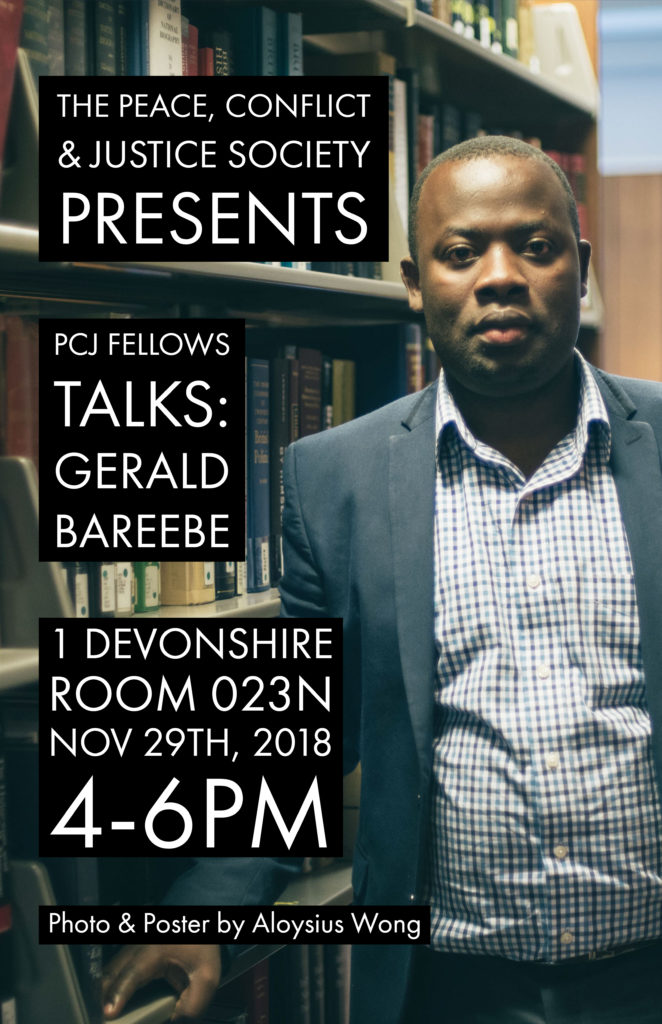The Trudeau Centre Fellow in Peace, Conflict and Justice is for Political Science doctoral students at the University of Toronto who are conducting research in areas related to peace, conflict and justice. You can read about our three PCJ fellows here.
The recipients of this award become fellows of the Centre and have the opportunity to participate in its academic life. This includes presenting about their research at a ‘Trudeau Fellows Talk’ organized by the PCJ Society.
I have the utmost respect for the students who decide to pursue doctoral studies. I admire their tenacity, intelligence, and their passion. PhD Candidate and Munk Fellow Gerald Barebbe clearly displayed the aforementioned characteristics in his talk, while maintaining a charming sense of humility and humour.
Gerald has focused his research on the relationship between the military and the government in newly established regimes. Growing up in post-Obote Uganda, one could say that Gerald’s research began the day he was born and continues to this day. Gerald focuses the bulk of his time on Rwanda and Uganda, although he recognizes that research in South Sudan is important and forthcoming.
He compares Uganda and Rwanda’s post-coup political development. In Rwanda, while free speech is ostensibly allowed, those found criticizing President Kagame suffer a series of unfortunate events that culminate in being thrown in prison. In Uganda, on the other hand, President Museveni is much more tolerant of criticism and doesn’t punish those who partake.
While rather anecdotal, these two policies illuminate the crux of Gerald’s research. In Rwanda, as Gerald put it, there is a military in possession of a state. In Uganda, there is a state in possession of a military. Yet the current ruling parties in both states seized power by force of arms. So why is there such a difference between the two governments when it comes to—among other things, of course—freedom of speech laws? Stay on the lookout for papers published by Gerald Barebbe in the near future; he’ll tell you all about it.
